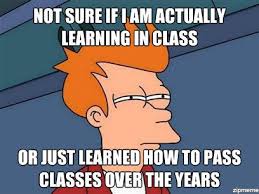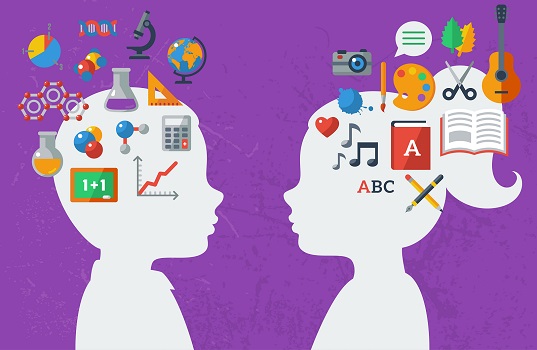
This first meme is for Wesch and his idea that students struggle to find significance in their education. He understood the goals of teaching, to produce "life-long learners" with "critical thinking skills" and an ability to "think outside the box" but he also gives us the tool. We need to teach our students to not only keep asking questions but we need to teach them how to ask better questions. Better questions that lead to more questions and continued, endless learning. The teacher needs to focus less on conveying information and more on developing these questioning skills and strategies. I also think his statement "When students recognize their own importance in helping to shape the future of this increasingly global interconnected society the problem of significance fades away". Our students need to be part of the difference in order to truly succeed at learning. Service learning and our Cornerstone projects in Central Falls are a step toward this but we have long strides in getting our students to question things themselves critically and to react to such ideas with more questions and focus for learning.


These next two memes were my interpretation of Turkle's ideas that as a society we are avoiding conversation by making excuses and instead trying to get by with a text, an email, or a post instead of a conversation. One of my biggest pet peeves today is the constant wearing of headphones even in places where it's inappropriate. So we are always communicating but have sacrificed conversation for connectedness according to Turkle. Her term "alone together" is how I view society. I was a waitress a while back and I would watch my tables and experience the deterioration of communication. Families would come in and a parent would set up a portable dvd player as the menus were being passed out. The kids watch the screen and parents were in their own world. Table of two, sitting facing each other but both oblivious to the fact the other exists as the tap and swipe away, looking not at each other but only at their phones. Now, I witness babies and toddlers given electronic device upon entering a store, a restaurant, at an appointment, or even in the car. We are teaching our society at a very young age a dependence on a device instead of on people. Kids don't ask their parents anything anymore, they google it. People even try to replace doctors and veterinarians by googling symptoms instead of seeking medical attention and advice. In school, I even see it with the relationship between some of my colleagues and their students where they only know their students by data or behavior but not on a personal level, their interests, their hobbies, their story. I meet with my students in 12-14 day cycles which gives me constant chances to connect, reconnect, and talk to them about their lives and their learning. As Turkle also pointed out face to face conversation is slow and teaches patience. It allows us to see facial expression, read body language, make eye contact, and even understand tone and it's the only way to get to know another person. She also has a valid fear that without learning the art of conversation we will also loose the skill of self- reflection. Her point that even facebook ask's what's on your mind but what people post is what they want others to perceive about their life not something self reflective because that requires trust. I make my students fill out a variety of self reflections after different kinds of activities. After collaborative activities they reflect on their own participation as well as the other members with online google forms. When doing projects they reflect on the difficulties, enjoyment, problems encountered, and give suggestions usually on a reflection sheet and at the end of each quarter they reflect on their growth in reading and math through online journaling.

Finally, this last meme is my interpretation of what both Wesch and Turkle have in common- our societies deterioration of verbal communication and the denial that conversations are necessary and meaningful in any type of learning. The answer they both have is to explore, teach, and model the art of conversation before it goes extinct. We as adults, educators, and people need to engage in conversation and make it become important again. I think both would believe in service learning projects, more hands on collaborative opportunities to get these conversations started. Wesch would say that put the kids in groups and give them a focus and let them figure it out, which is exactly what I did this year in my first experience with a breakout box. Gone are the days when we had news to share and called or visited to tell others now we share it with the hold world in seconds. The most ironic part is that people think being connected will make us less lonely but the opposite is true. An electronic device offers companionship without the demands of a relationship, and relationships are developed through conversations so will less conversation lead to fewer strong relationships?

Finally, this last meme is my interpretation of what both Wesch and Turkle have in common- our societies deterioration of verbal communication and the denial that conversations are necessary and meaningful in any type of learning. The answer they both have is to explore, teach, and model the art of conversation before it goes extinct. We as adults, educators, and people need to engage in conversation and make it become important again. I think both would believe in service learning projects, more hands on collaborative opportunities to get these conversations started. Wesch would say that put the kids in groups and give them a focus and let them figure it out, which is exactly what I did this year in my first experience with a breakout box. Gone are the days when we had news to share and called or visited to tell others now we share it with the hold world in seconds. The most ironic part is that people think being connected will make us less lonely but the opposite is true. An electronic device offers companionship without the demands of a relationship, and relationships are developed through conversations so will less conversation lead to fewer strong relationships?








